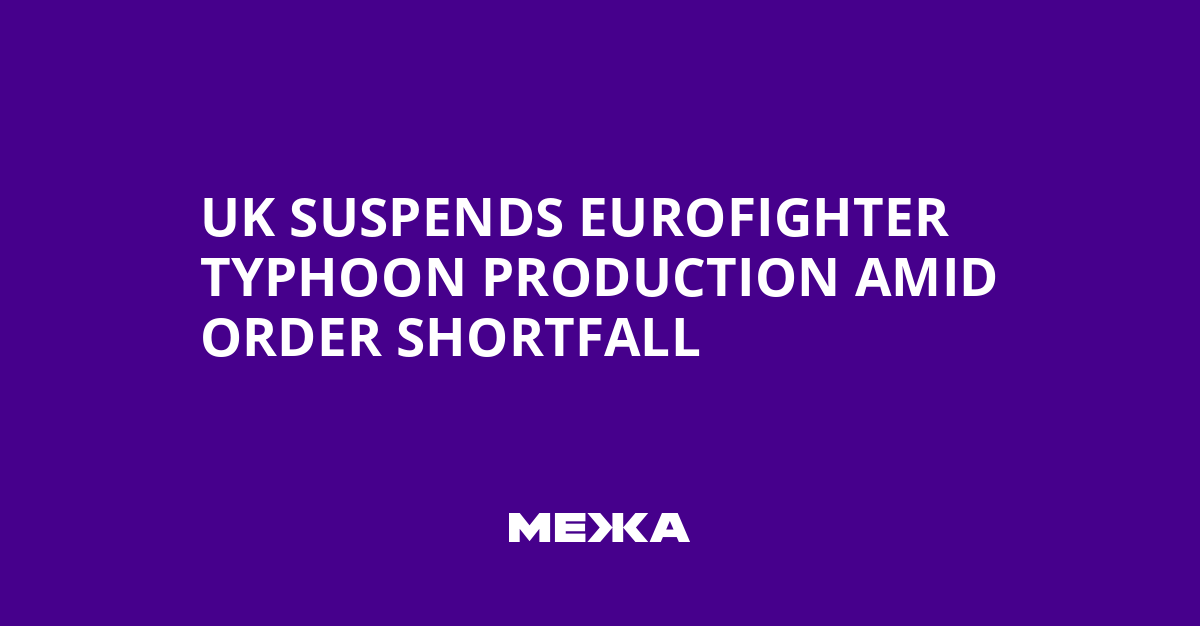In the United Kingdom, production of Eurofighter Typhoon fighter jets has been halted due to a lack of new orders, raising concerns about potential losses of critical skills in the aerospace industry. This was reported by the Financial Times.
For decades, these aircraft have been manufactured at the BAE Systems factory in Warton, Lancashire. Currently, the final assembly line has nearly stopped as the facility prepares to deliver the last aircraft under a £5 billion contract with Qatar signed in 2017.
“There is one jet in the hangar, but it is essentially waiting for a few parts and painting. As for the main assembly, it is complete, and no workers are currently working on it.”
– union representative
Since the last order, the UK government has not placed any new aircraft contracts since 2009, and further export deals with Saudi Arabia and Qatar have yet to be finalized. If new orders do not materialize soon, this could lead to the loss of vital industrial skills needed to develop next-generation fighters under the Global Combat Air Programme (GCAP).
Unite union general secretary Sharon Graham emphasized that BAE workers and the defense industry across the United Kingdom are questioning the government’s actions, which promised to turn defense spending into “British growth, British jobs, British skills, British innovation.”
“I have repeatedly told government ministers how great the risk is to jobs, skills, and national security if we stop building our own fighters.”
– Sharon Graham
Typhoon production is carried out by a pan-European consortium including BAE, Airbus, and Leonardo. Each company manufactures different components, with final assembly taking place in the partner country that orders the jets or leads the export deal.
BAE continues to produce front fuselages for orders from other countries, which are then shipped to Europe for final assembly. The recent UK government decision to purchase American F-35 fighters instead of new Typhoons has sparked debate over the country’s defense priorities.
Although the UK plans to upgrade its Typhoons, it is the only consortium country that has not placed an order for the latest model of the aircraft.
Defense Secretary John Healey declined to comment on the prospects of a new order last week but confirmed the importance of the Typhoon and the need for its modernization. He also stated that the country plans to acquire 27 F-35 fighters by the end of the decade, with 15 being F-35B variants for aircraft carriers and 12 F-35A variants capable of carrying tactical nuclear bombs.
Industry leaders report progress in negotiations for new export orders of Typhoons with Qatar, Saudi Arabia, and Turkey.
Aerospace magazine editor Tim Robinson believes the break in continuous fighter jet production in the UK is likely to be temporary but warns of the risks of losing key skills during a prolonged pause.
“The longer the break, the greater the risk of losing key skills and critical experience that will be needed for next-generation fighters.”
– Tim Robinson
The UK Ministry of Defence states that the Typhoon will remain the backbone of the country’s air defense at least until the 2040s, with future investments depending on the Defence Investment Plan to be published later this year.
